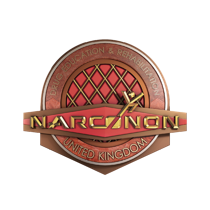Cocaine: A Millennial Minefield

Alcohol and marijuana are known as gateway drugs, meaning they open the door for more powerful and deadly substances. Cocaine is not only one of these, but one of the worst.
Cocaine, also known as benzoylmethylecgonine or coke, is a powdered substance used commonly by club goers, ravers, partiers, businessmen, and women. It is a powerful stimulant most commonly snorted causing a short-lived high that users often seek for social occasions and during alcohol consumption—although some users may end up taking it alone in private throughout the day.
Often glamourized in social media through film, TV, and music, the ‘cool’ appeal can lure younger generations into tolerating others around them using cocaine. With modern-day peer pressure and opportunities to sample drugs in abundance, this initial tolerance to other drugs users may lead to the individual finding that the idea of experimenting for the first time is acceptable for them to do.
“Screw it—I’m still young”, “Come on live a little” or “You only live once (YOLO)” are all phrases often used by Millennials in situations and opportunities for drug-taking. These phrases are great tools for displacing blame, shrugging off responsibility and are indicative of a wider generational attitude. These phrases are ripe for use when there is peer pressure for social acceptance or questions in the individual’s own mind, requiring justifications to themselves—or even to their family. These typical phrases may not all be new but they are definitely the most poignant for younger users.
In the UK alone, 31% of adults admitted to taking illegal drugs even if only occasionally and 13% admitted to having a drug problem (i.e. addiction and abuse). 23% attested to using drugs daily. What’s more, 41% of UK adults admitted to taking their first drugs between the ages of 16 and 18. Opening the gateway to more powerful substances like cocaine. That equates to 26.91 million teenagers and young adults taking their first drug and 8.53 million adults having a current drug problem in 2018.
The natural progression from a ‘positive’ first experience (a stimulant or buzz without the established side effects manifesting yet) can see a one-time user quickly become a regular recreational user. Often, regular recreational use can see users finding themselves socially reliant and addicted to cocaine to be able to relax, enjoy themselves and feel that they are having a good time.
I’ve seen people go out socially and be ill-at-ease or anxious unless they had—or knew that they would have—cocaine arriving soon for consumption. They were at the point that they needed it in a social setting and were unsociable when without.
When regularly consuming cocaine, most users are also regularly transacting to acquire the substance. When friends and others around you are regularly using, a user may realize that as the regular demand is present, there may be a ‘logical’ financial appeal for bulk-buying or even distributing to friends and close contacts.
These actions that directly result in financial gain can end up making a lot of ‘sense’ to someone with an expensive but ‘social’ habit. Consumers turned consumer vendors, are sometimes referred to as ‘accidental drug dealers’—it was their own use that led to distributing, and thus a new level of criminal activity. It can quite quickly become an acceptable norm, viewed as a smart or optimal way to do things.
Aside from social effects, direct physical effects of cocaine can include:
- False sense of confidence, talkativeness, increased alertness, hyperactivity, reduced inhibitions, aggression, anxiety and more risk-taking.
- Raised body temperature, increased heart rate, reduced appetite. This can lead to dehydration and malnutrition.
When the effects start to wear off, people often experience a ‘comedown’, where they may feel depressed and run down. This crash can last for days afterward.
From the experience of a past drug user, “The way in which one would end up using cocaine is, after using drugs like marijuana you begin to slowly fell less of a ’high’ and need a substance stronger to achieve the high you want. You begin to then use cocaine and take to it as your drug of choice as it is highly addictive .”—N.M. (past drug user now clean for 26 years)
The potential long-term effects of cocaine on the body are numerous—here are a few:
- Permanent damage to blood vessels of heart and brain
- Liver, kidney and lung damage
- Sexual problems, reproductive damage, and infertility (for both men and women)
- Malnutrition, weight loss
- High blood pressure, leading to heart attacks, strokes, and death
The long-term consequences far outweigh the short-lived high.
“Cocaine is also, in itself a gateway drug. It opens the doors to crack cocaine, heroin, and much more. Once the cocaine stops giving the high you wanted, drug users lean to these even more deadly drugs .” D.H. (heroin user now clean 14 years)
When taking drugs, cocaine is likely to be one you eventually come across as a natural progression. If someone is a user of cocaine, then typically stronger, more powerful drugs may become of interest. These may be the first steps along a path where the risk of losing family, friends, and yourself increases day-by-day.
References:
- https://www.theguardian.com/society/2014/oct/05/-sp-drug-use-is-rising-in-the-uk-but-were-not-addicted
- http://www.talktofrank.com/drug/cocaine
- http://www.drugfreeworld.org/drugfacts/cocaine/effects-of-cocaine.html
- http://alcoholrehab.com/drug-addiction/homelessness-and-substance-abuse/
- http://www.michaelshouse.com/drug-abuse/study-homelessness-addiction/


